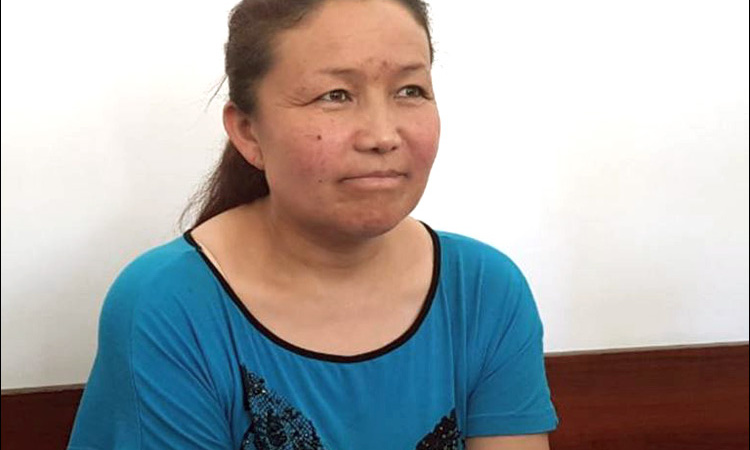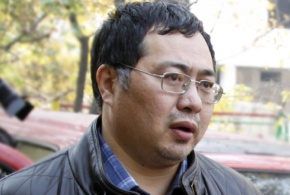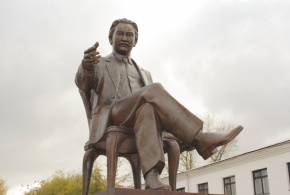
MOSCOW — The Central Asian nation of Kazakhstan has refused to grant asylum to a Chinese woman who fled her country and spoke publicly about working in Chinese internment camps in the far west that are holding an estimated 1 million minority Muslims, her lawyer said on Friday.
Abzal Quspan told The Associated Press that Kazakh officials have rejected the asylum request by Sayragul Sauytbay, an ethnic Kazakh Chinese national who fled China in April.
"We were expecting this (decision)," he said. "We all understand what kind of influence China wields on the authorities here."
He said the ruling is not final and that he would be appealing.
Sauytbay had been put on trial for illegally crossing into Kazakhstan and given a six-month suspended sentence, which was greeted by her supporters and rights activists as indicating that she would not be deported back to China.
The case highlights the delicate position that Kazakhstan finds itself in at a time of growing reliance on Chinese investment as well as mounting pressure from the public to protect fellow Kazakhs in China's western regions.
In recent years, Kazakhstan has played an increasingly prominent role in Chinese President Xi Jinping's signature, trillion-dollar foreign policy and infrastructure project known as the Belt and Road Initiative, with the transit hub of Khorgos playing a key role for the movement of goods.
The AP has previously spoken to several Kazakh nationals and Chinese Kazakhs who said their relatives had gone missing in China and were presumably placed into indoctrination camps.
China has denied the existence of re-education camps but has on occasion said that authorities provide vocational training to minor criminals in the region. The internment camps have drawn criticism from the U.S. and a U.N. panel.
Sauytbay had told the Kazakh court in August that the indoctrination camp she had to work in was no different from a prison, according to Radio Free Europe. Chinese authorities made her train "political ideology" instructors who would work in the camps, she told the court. The revelation of such politically sensitive details would mean that if she was forced to return to China, she would likely be imprisoned.
Sauytbay's lawyer Quspan told the AP on Friday that her client can stay in Kazakhstan at least until the end of the month as an asylum-seeker and while the appeal of the initial refusal to give her asylum is pending.
Quspan also said that he is drawing up a letter to the United Nations High Commissioner for Human Rights, asking for an intervention in his client's case.
The commissioner last month urged China to allow her office access to all regions of China to respond to the allegations of large-scale detentions of Uighurs and other Muslims in these camps.



















 Сот белсенді Ермек Нарымбайдың мерзімінен ерте босап шығу туралы өтінішін орындамады
Сот белсенді Ермек Нарымбайдың мерзімінен ерте босап шығу туралы өтінішін орындамады
 Poverty and misery of …. “terrorists”
Poverty and misery of …. “terrorists”
 SCIENTISTS OF THE KAZNU ARE INVESTIGATING THE PROBLEM OF SURVIVAL OF MICROORGANISMS IN EXTREME CONDITIONS
SCIENTISTS OF THE KAZNU ARE INVESTIGATING THE PROBLEM OF SURVIVAL OF MICROORGANISMS IN EXTREME CONDITIONS
 "Atomic" exam for officials of Kazakhstan
"Atomic" exam for officials of Kazakhstan
 Faculty of Journalism of the Al-Farabi Kazakh National University held an annual scientific and practical conference «Bekhozhinov readings»
Faculty of Journalism of the Al-Farabi Kazakh National University held an annual scientific and practical conference «Bekhozhinov readings»
 Kazakhstan signed an agreement with Russia on the allocation of vaccine against coronavirus
Kazakhstan signed an agreement with Russia on the allocation of vaccine against coronavirus